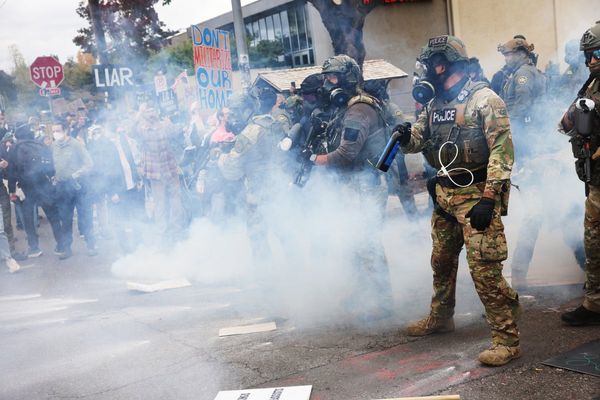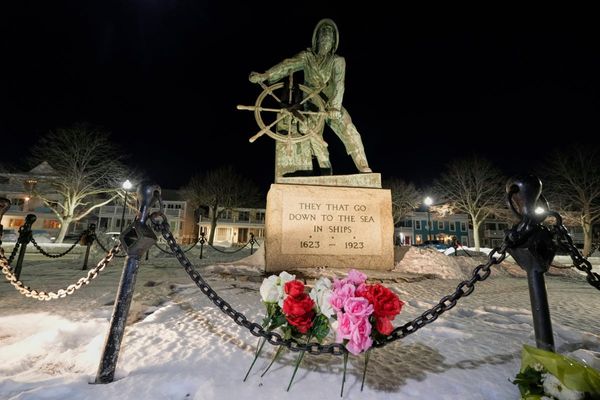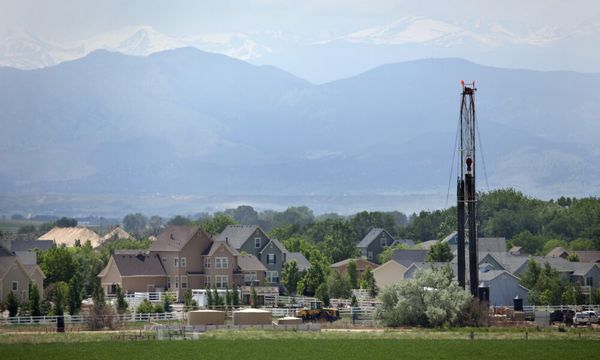Prime Minister Anthony Albanese has revealed a proposed set of words to be added to the constitution to enshrine an Indigenous Voice to Parliament.
He has also outlined what Australians might be asked in a referendum on an Indigenous Voice to Parliament.
The new details Mr Albanese outlined at the Garma Festival in north-east Arnhem Land have been heralded by some as a historic moment.
It has been a long process. Here are a few key points to get you up to speed.
Where did this process all start?
It started with a historic meeting of First Nations people from across the country at the First Nations' National Constitutional Convention in 2017.
As many as 250 Indigenous delegates met at Uluru and, after days of discussions, reached a consensus on a 440-word statement, now known at the Uluru Statement from the Heart, which you can read in full at the bottom of this story.
It has three key objectives: a Voice to Parliament, Treaty, and Truth.
The statement references the 1967 referendum, which changed the constitution to include Aboriginal and Torres Strait Islander people in population counts, and gave the federal government the power to make laws for Indigenous Australians in the states.
What would an Indigenous Voice to Parliament be?
It would be a permanent body representing First Nations people that would advise government on Indigenous policy.
What does the PM want to add to the constitution?
The starting point, Mr Albanese says, is a recommendation to add three sentences to the Constitution:
1. There shall be a body, to be called the Aboriginal and Torres Strait Islander Voice.
2. The Aboriginal and Torres Strait Islander Voice may make representations to parliament and the executive government on matters relating to Aboriginal and Torres Strait Islander peoples.
3. The parliament shall, subject to this constitution, have power to make laws with respect to the composition, functions, powers and procedures of the Aboriginal and Torres Strait Islander Voice.
What might Australians be asked in a referendum?
The government has drafted this question:
"Do you support an alteration to the constitution that establishes an Aboriginal and Torres Strait Islander Voice?"
Mr Albanese has pledged to settle the issue as soon as possible.
"We will walk on that journey and, together, we will get this done," Mr Albanese said at the Garma Festival.
On election night, Mr Albanese began his victory speech by saying that he was committed to the Uluru Statement from the Heart in full.
So, when could Australians vote on this issue?
Authors of the Uluru Statement from the Heart have pushed for a referendum in May 2023 or January 2024.
May 27, 2023, will be the 56th anniversary of the successful 1967 referendum.
There have been 44 national referendums since federation and only eight have been successful.
What still needs to be worked out?
This is where we get into the contentious issue of details.
The lines Mr Albanese wants to add to the constitution outline that parliament would have the power to decide the functions, composition and powers to the Voice.
Mr Albanese says that is because the voice would not be a third chamber of the parliament.
Back in 2017, then-prime minister Malcolm Turnbull said the Voice would not be "desirable" or be successful in a referendum.
Mr Turnbull said that was because "it would inevitably become seen as a third chamber of parliament".
Mr Albanese, on the other hand, has stressed the Voice would not supersede parliament.
"This isn't a body that is on top of the parliament. It's not even at the side of the parliament. It doesn't seek to usurp the power of the parliament," Mr Albanese told Insiders host David Speers on Sunday morning.
"What it seeks to do, though, is to break with what I call 'the tyranny of powerlessness' that First Nations' people have suffered from [more than] 121 years of the Commonwealth making decisions in Canberra without having respect and without having consultation with First Nations' people themselves."
The opposition has suggested that Australians need to see more details.
Coalition spokesman for Indigenous Australians Julian Leeser said change could only happen if the electorate was well-informed.
"This has been a positive step today in [Mr Albanese] putting forward some words in terms of constitutional amendment. I think the next step has to be to explain to Australians how the Voice will actually work," he said.
Indigenous Affairs Minister Linda Burney said there would be plenty more detail.
"There will be a lot of information out to the community about what people are voting on," she says.
"It would be nuts for that not to happen."
However, Mr Albanese said, details about the legislation around the structure of the Voice would not be released until after the referendum.
"What I am not going to do … is to go down the cul-de-sac of getting into every detail, because that is not a recipe for success," he said.
Do Australians support establishing a Voice to parliament?
Earlier this year, ABC's Vote Compass asked whether Australia should amend its constitution to establish a representative body or Voice to advise parliament on laws and policies affecting Indigenous peoples.
Overall, 73 per cent of Australians agreed '"strongly" or "somewhat" that there should be constitutional change to give Indigenous Australians a greater say over their lives.
That's an increase from the lead-up to the 2019 election, when 64 per cent of voters supported the push for a referendum.
What does the Uluru Statement from the Heart say?
Here it is, in full:
We, gathered at the 2017 National Constitutional Convention, coming from all points of the southern sky, make this statement from the heart:
Our Aboriginal and Torres Strait Islander tribes were the first sovereign Nations of the Australian continent and its adjacent islands, and possessed it under our own laws and customs. This our ancestors did, according to the reckoning of our culture, from the Creation, according to the common law from 'time immemorial', and according to science more than 60,000 years ago.
This sovereignty is a spiritual notion: the ancestral tie between the land, or 'mother nature', and the Aboriginal and Torres Strait Islander peoples who were born therefrom, remain attached thereto, and must one day return thither to be united with our ancestors. This link is the basis of the ownership of the soil, or better, of sovereignty. It has never been ceded or extinguished, and co-exists with the sovereignty of the Crown.
How could it be otherwise? That peoples possessed a land for sixty millennia and this sacred link disappears from world history in merely the last two hundred years?
With substantive constitutional change and structural reform, we believe this ancient sovereignty can shine through as a fuller expression of Australia's nationhood.
Proportionally, we are the most incarcerated people on the planet. We are not an innately criminal people. Our children are alienated from their families at unprecedented rates. This cannot be because we have no love for them. And our youth languish in detention in obscene numbers. They should be our hope for the future.
These dimensions of our crisis tell plainly the structural nature of our problem. This is the torment of our powerlessness.
We seek constitutional reforms to empower our people and take a rightful place in our own country. When we have power over our destiny our children will flourish. They will walk in two worlds and their culture will be a gift to their country.
We call for the establishment of a First Nations Voice enshrined in the Constitution.
Makarrata is the culmination of our agenda: the coming together after a struggle. It captures our aspirations for a fair and truthful relationship with the people of Australia and a better future for our children based on justice and self-determination.
We seek a Makarrata Commission to supervise a process of agreement-making between governments and First Nations and truth-telling about our history.
In 1967 we were counted, in 2017 we seek to be heard. We leave base camp and start our trek across this vast country. We invite you to walk with us in a movement of the Australian people for a better future.







